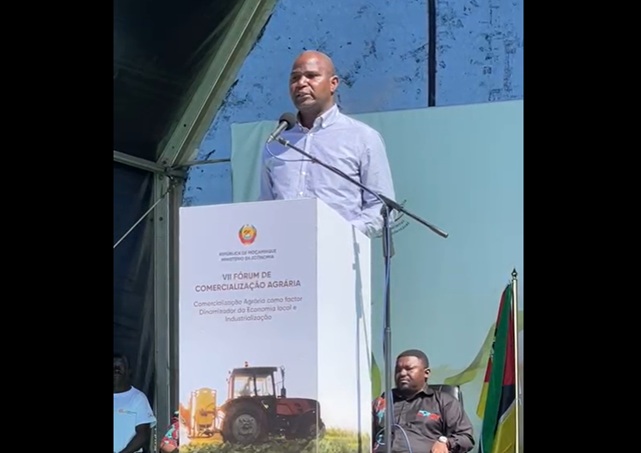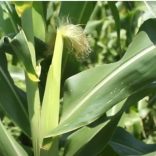Mozambique: Beekeeping project launched in Mágoè - AIM
Mozambique: Chapo launches 2025 agricultural marketing campaign – Watch

Screen grab: Arlindo Cesário Ngozo/Facebook
Mozambican President Daniel Chapo on Thursday blamed the post-election unrest for the 4.9 per cent fall in the country’s gross domestic product registered in 2024.
Speaking in Sussundenga district, in the central province of Manica, where he launched the 2025 agricultural marketing campaign, he said the country “has just been through turbulent moments due to the violent, criminal and illegal demonstrations, which culminated in the destruction of public and private infrastructures, affecting the social and productive fabric of the economy”.
The situation was made worse by a series of climatic shocks, notably cyclones Dikeledi, Chido and Jude, Chapo added, which affected agricultural production in some parts of the country.
Despite the climatic events, production in the 2024 agricultural year was positive in terms of food crops, with a growth in grain production of about nine per cent, in pulses of seven per cent and in root crops, particularly cassava, of 12 per cent.
The overall balance sheet of the 2024 agricultural campaign was that 20.1 million tonnes of produce was marketed, compared with 17.2 million tonnes in the previous year.
Chapo declared that agricultural marketing “is the link which ties work in the countryside to the economic growth of our cities, towns and villages”.
The plan for agricultural production in 2025 is for an overall growth of five per cent. This Chapo said, will result from a two per cent increase in the area under cultivation, an increase in the number of households farming, and with access to means of production, and investment in new areas of commercial agriculture.
The President added that the government has taken measures to halt economic decline, including establishing the Economic Recovery Fund, with an initial endowment of 319.5 million meticais (about five million US dollars, at the current exchange rate).
The purpose of this fund is to ensure financing for micro, small and medium enterprises, and to productive sectors with a high potential for economic expansion.
“Mozambique is laying the foundations for its economic independence”, said Chapo. “The diversification of the economy is fundamental to reduce our dependence on volatile markets and to ensure that our farmers have a stable income”.
Agricultural marketing took on a strategic role, he added, “because when we create multiple value chains, we stimulate local agro-industry and we create jobs throughout the country”.













Leave a Reply
Be the First to Comment!
You must be logged in to post a comment.
You must be logged in to post a comment.